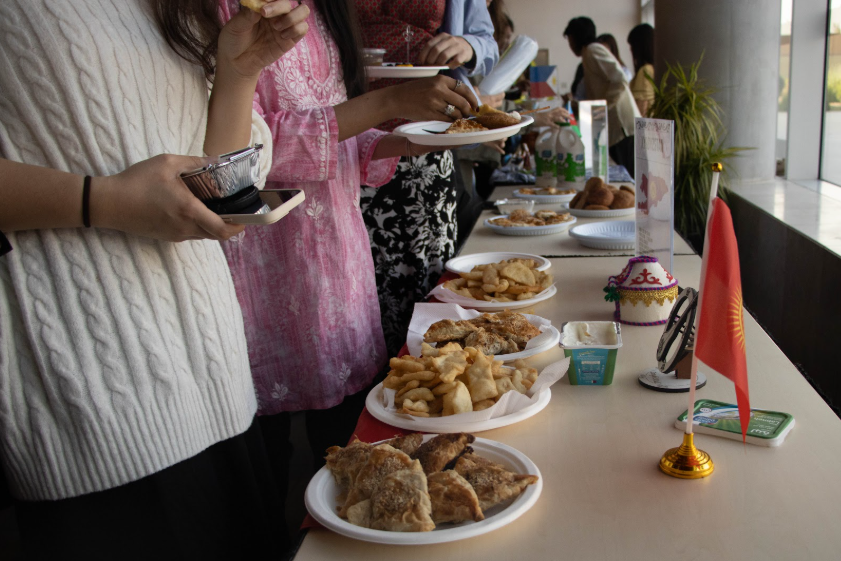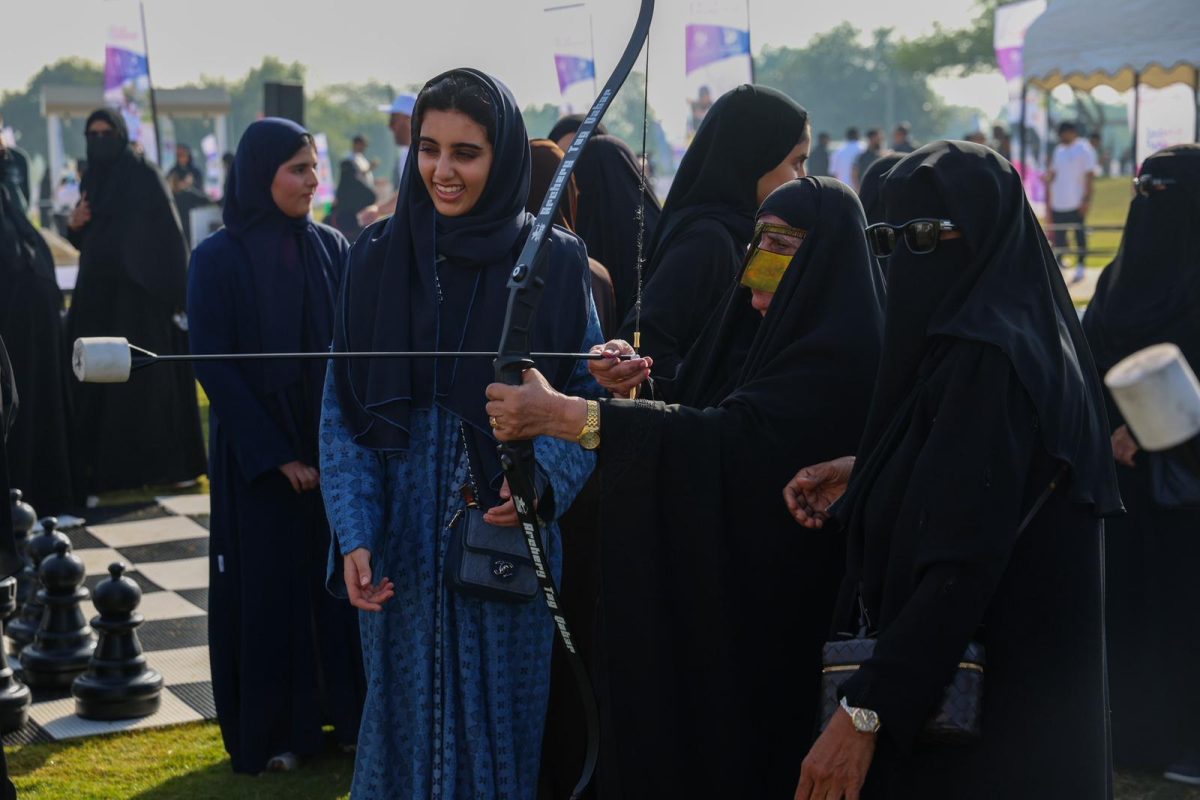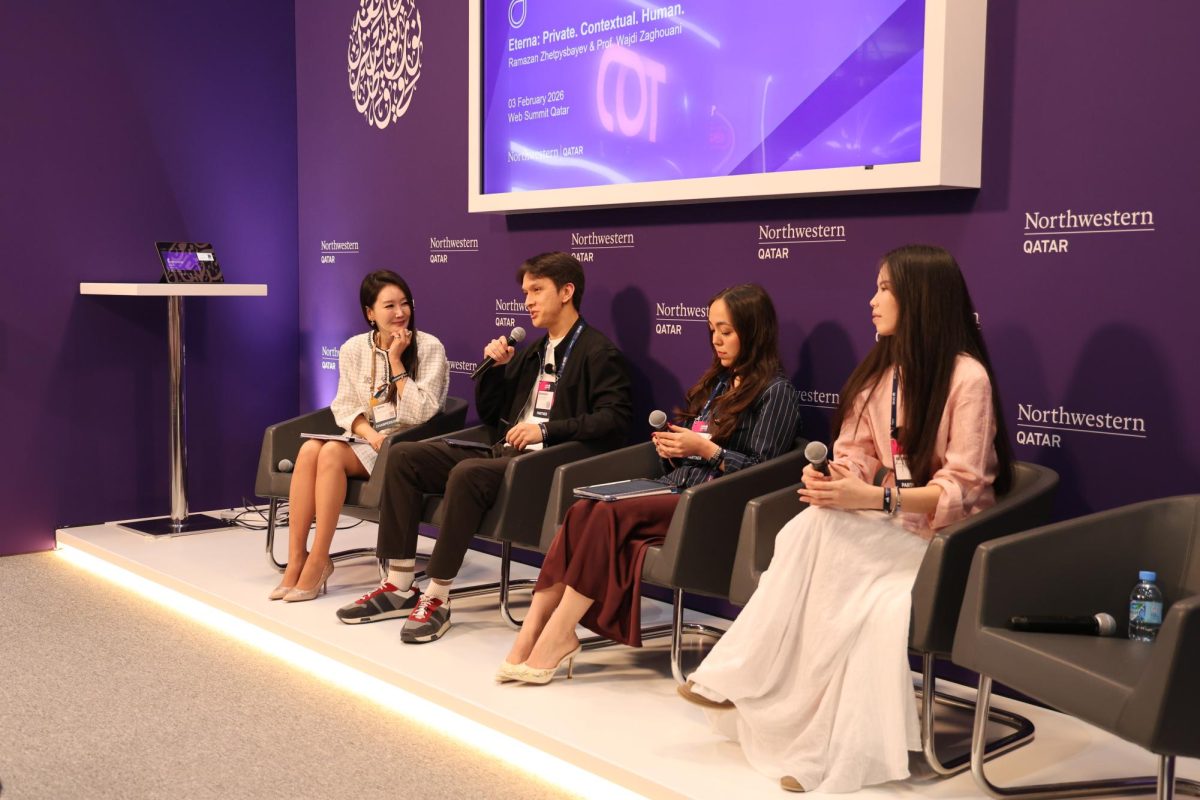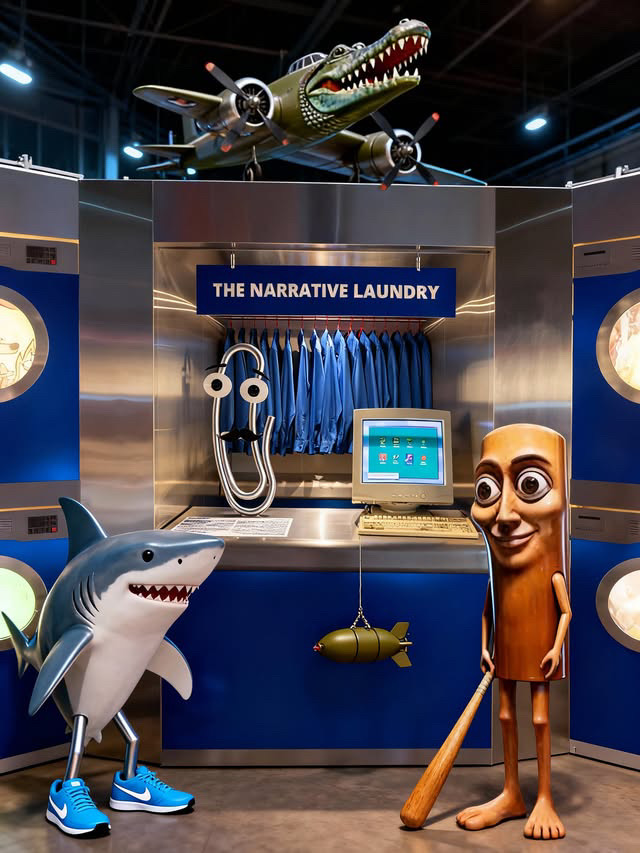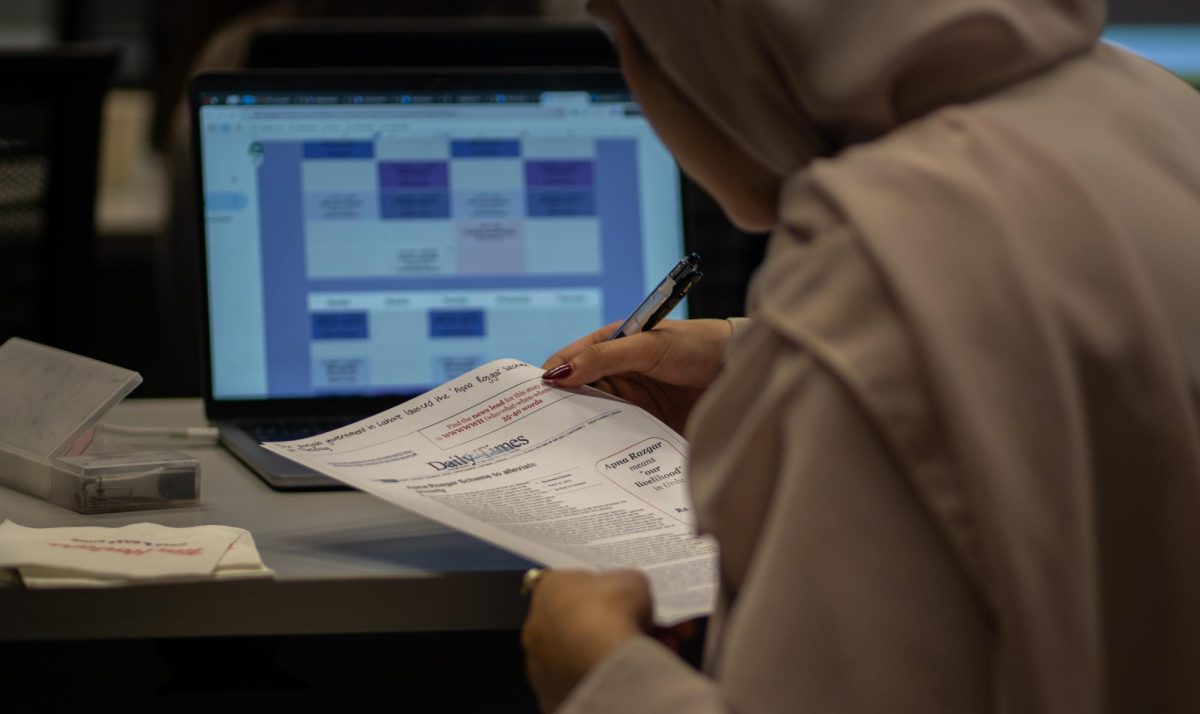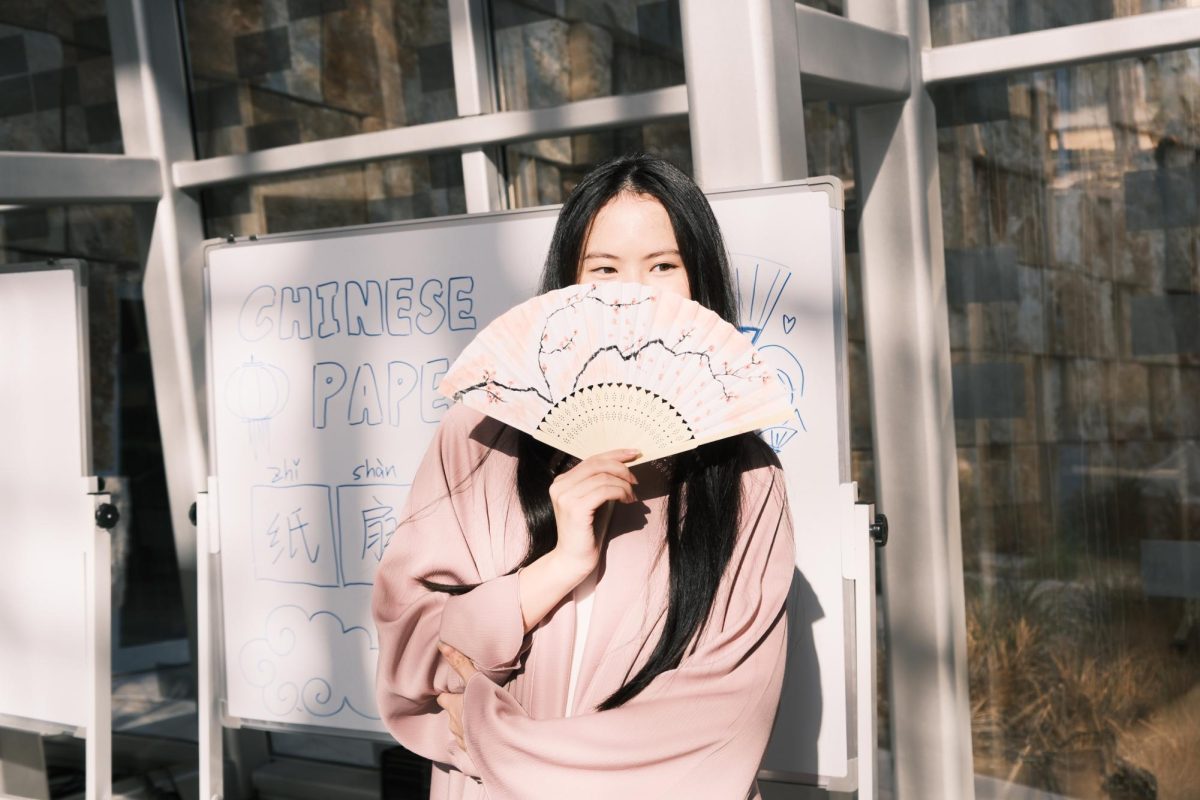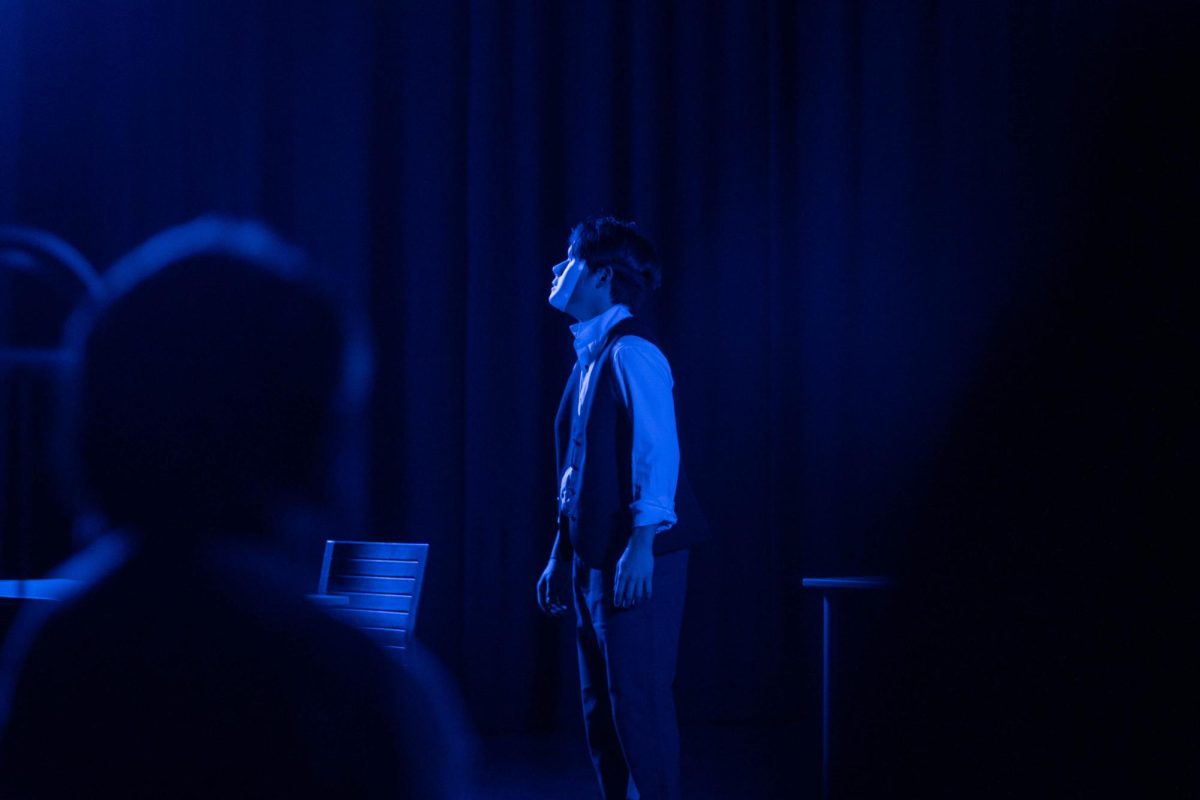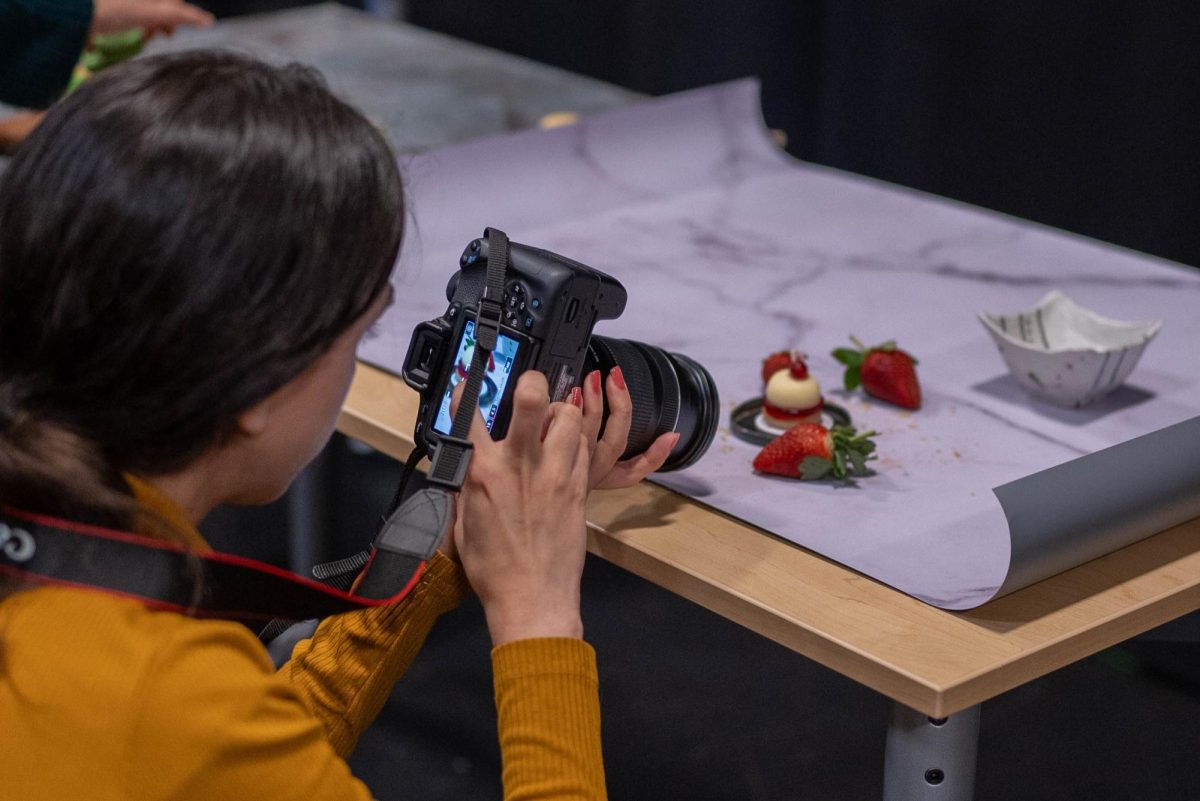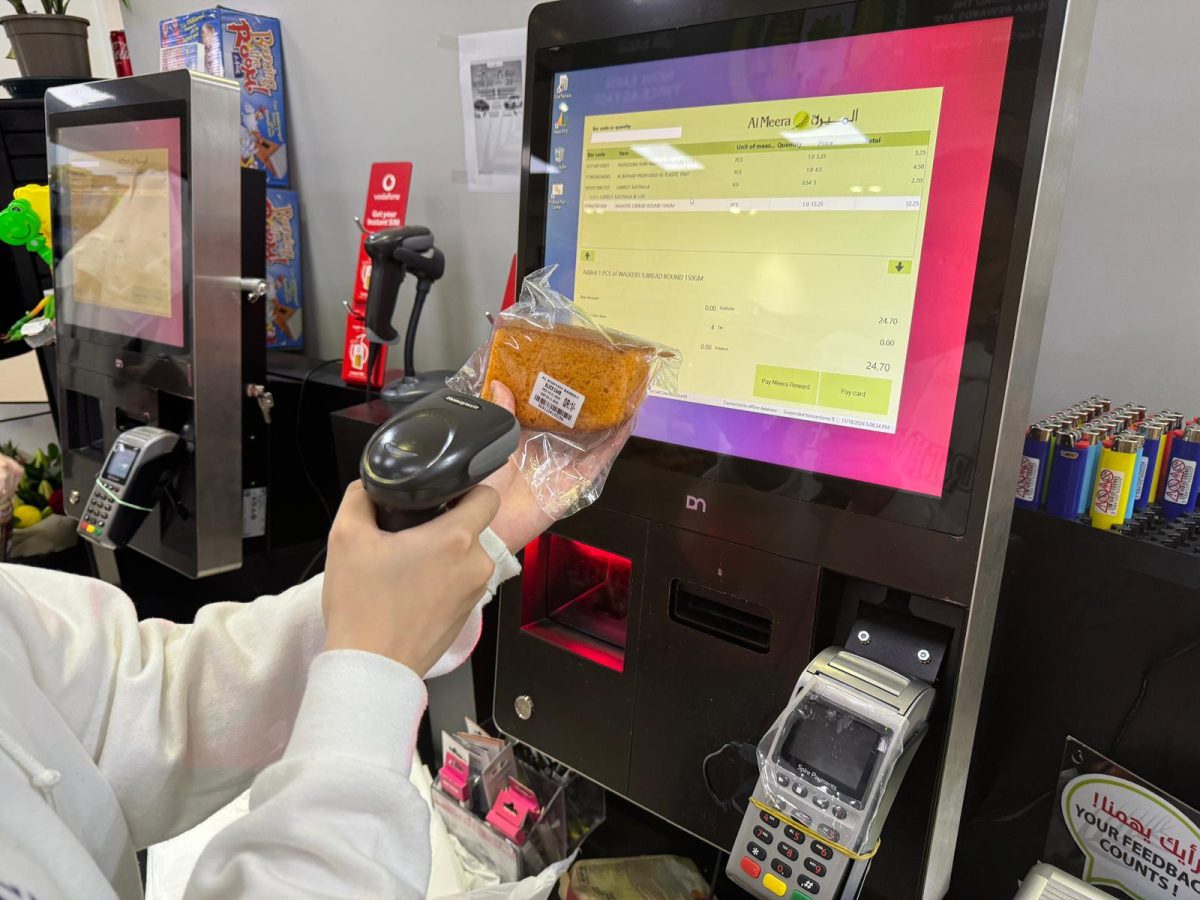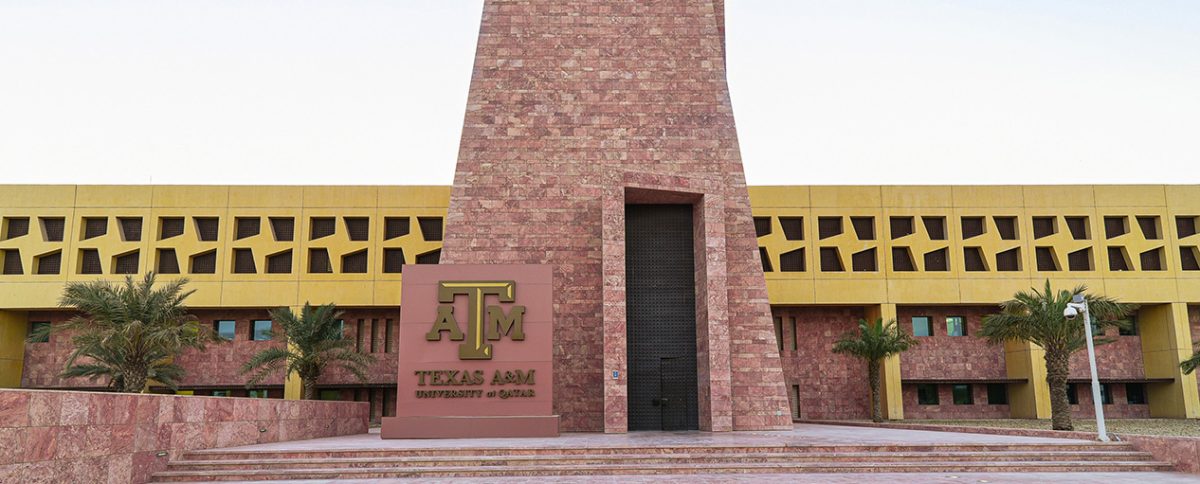Northwestern University in Qatar (NU-Q) is one of the most diverse university communities in the Arab region, with students representing over 50 countries. From the moment international students arrive in Doha and step into the August heat, they take on multiple identities: citizens of their home countries, Qatar residents, and Wildcat community members. At this American university campus with a global south focus, they explore what it means to be part of a worldwide community. Still, many find themselves drawn back to their roots, each connecting with their culture in unique ways.
“I come to university randomly dressed in Zambian clothes sometimes,” said In’utu Imbuwa, a journalism senior from Zambia.
Imbuwa makes her traditional Zambian clothing by hand, avoiding sewing machines, and often brings the fabrics as souvenirs for friends. In return, they share snacks from their own countries.
For Imbuwa, fashion plays a significant role in her cultural expression. Her academic work reflects her connection to her Zambian fashion, including a published research paper titled “Tailoring Modernity and Wrapping Tradition: Chitenge [African Print Fabric] Class and Culture in Zambia” and a study funded by the Institute for Advanced Study in the Global South (IAS) titled “Watermelon Politics and Chitenge in Zambia.”
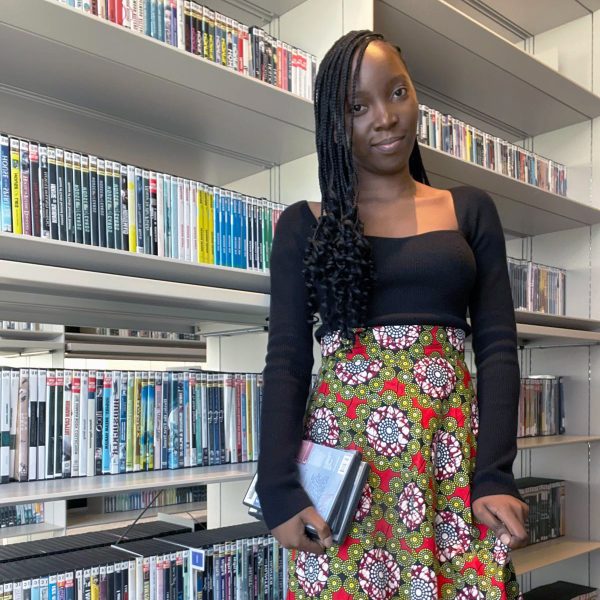
Culture is central to Imbuwa’s identity, and one of the main reasons she chose the university was the Zambian community at NU-Q. Though most Zambian students who preceded her have since graduated, she remains connected to the broader African diaspora in Doha through events, church, and WhatsApp groups.
However, for NU-Q students without an established cultural community in Doha, staying connected to their heritage can be a significant challenge. The absence of cultural spaces or representation often deepens feelings of isolation, but many students find creative ways to maintain their cultural identity.
“I really miss the feeling of a community of people who would relate to Eastern Europe as well as me,” shared Mariia Budziievska, a Ukrainian journalism sophomore.
As the only Ukrainian student at NU-Q, Budziievska faces challenges in finding others with whom she can share and celebrate her traditions. Yet, she works to keep her heritage alive by giving friends gifts that reflect Ukrainian culture, such as items adorned with traditional ornaments and artistic motifs. She also cooks Ukrainian dishes for her friends, using food as a way to stay connected to her roots.
For students like Budziievska, cultural expression often depends on personal efforts, and Nomin Erdenetsogt, a Mongolian journalism sophomore, found herself in a similar situation.
“There are no Mongolian restaurants or cultural spaces in Doha,” said Nomin Erdenetsogt, a Mongolian journalism sophomore.
When she first arrived, Erdenetsogt was the only Mongolian in both NU-Q and Education City, which felt isolating. Without a Mongolian diplomatic presence in Doha, she found it difficult to stay connected to her country and culture. However, as more Mongolian students joined Education City, she found a stronger sense of community.
To celebrate these new connections, Erdenetsogt wore a traditional Deel—a loose, calf-length Mongolian tunic—a gift from a fellow Mongolian student, for the first time at NU-Q’s cultural potluck in November 2024, an event where students could showcase their cultural food and attire.
“It was a rare opportunity for me to embrace my culture and share the only piece of home that I carry,” she said, reflecting on that special day.
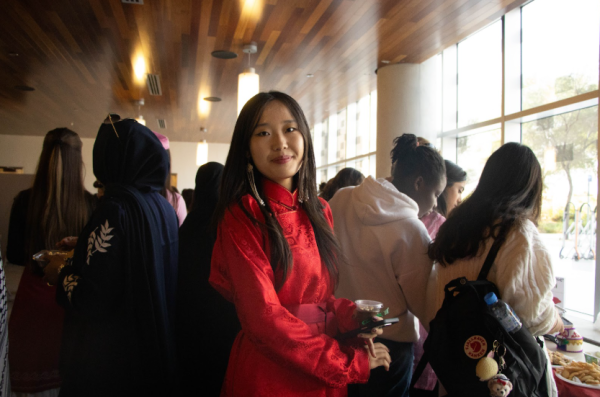
Although Erdenetsogt couldn’t find Mongolian cuisine in Doha, she recalled feeling the warmth of home when enjoying Arabic lamb curry at NU-Q events, reminiscent of Mongolian lamb dishes. Food with flavors similar to her home cuisine provides her with immense comfort.
Similarly, Thales Lima, a journalism sophomore and the vice president of the Brazilian Studies Association (BRASA) Qatar, also found ways to adapt to Doha’s culture while maintaining a connection to his Brazilian roots.
“I moved to an apartment not only to save more money on cooking but also to be able to cook Brazilian food, something I’ve been missing a lot here because it’s hard to adapt to local food,” Lima said.
Even though Lima does not experience Brazil’s Carnivals or Latin food in Doha, the Qatari hospitality reminds him of home. He has started hosting friends and sharing meals more often. He has also come to love traditions like gathering for karak or attending cultural events that showcase Qatari heritage. For Lima and other students, food has become a bridge between cultures.
Recognizing the importance of food in the community, the NU-Q Student Government (NUQ-SG) organized the cultural potluck to provide a space for students to showcase their cuisines through country booths featuring homemade dishes. Dishes from seven countries—Qatar, Sri Lanka, South Korea, Kazakhstan, Kyrgyzstan, Azerbaijan, and the Philippines—were served.
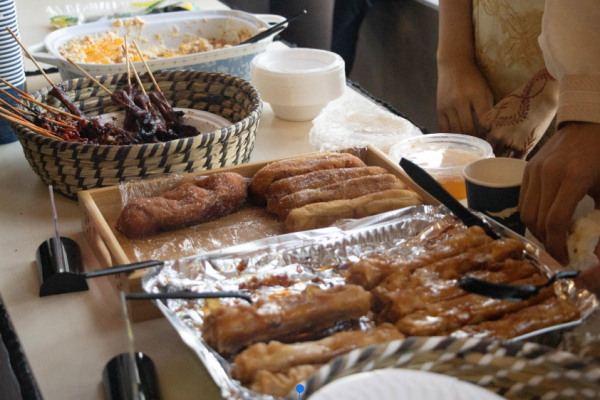
“We wanted the students to express their cultures and traditions, and there’s no better way to do that than through food,” said Fatima Al-Naemi, NU-Q’s Student Government media coordinator.
Gunel Huseynova, a journalism sophomore and NU-Q’s only Azerbaijani student, was among the participants hosting a country booth. For her, representing her culture was a meaningful responsibility.
“Our cuisine is such an essential part of our identity, and I wanted to share a piece of it with my peers—even if it’s just a small one,” she said.
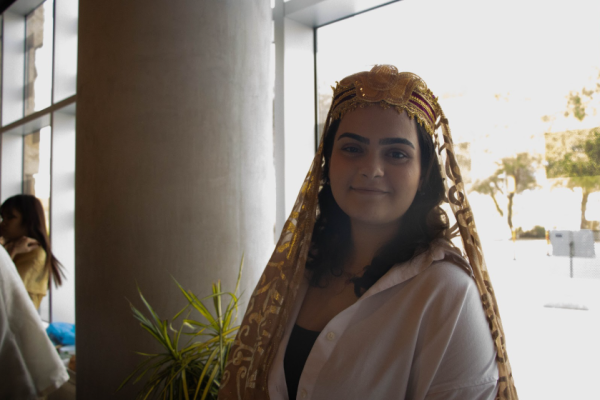
Huseynova prepared Paxlava, a traditional Azerbaijani dessert often served during holidays, giving attendees a taste of her homeland. “NU-Q is such a diverse place, and events like these are a fantastic way to celebrate that diversity,” she said.
Being away from home during their formative years, NU-Q students do more than simply retain their cultural heritage—they adapt and grow by engaging with the diverse cultures around them. Shahryar Firoz, a Pakistani freshman who attended the potluck wearing a traditional shalwar kameez, shared how his time at NU-Q has subtly reshaped his identity. “I even find my accent changing slowly,” he said.
Sharing their culture at NU-Q allows students to maintain their identities while embracing subtle changes that could reflect their integration into this diverse community.

